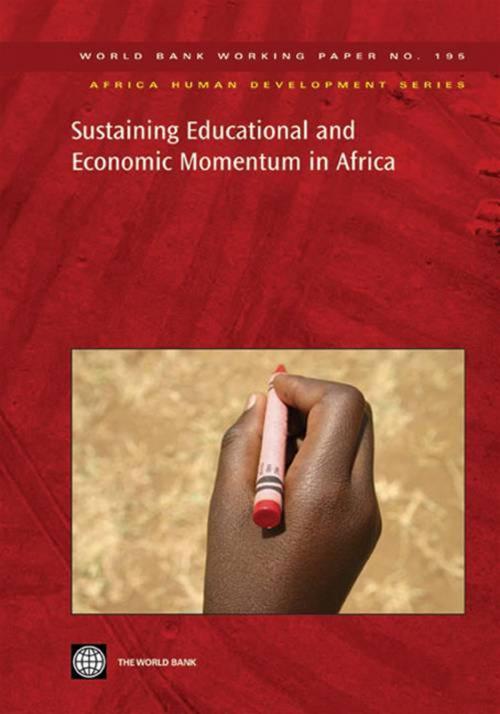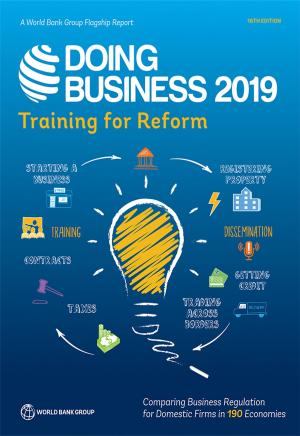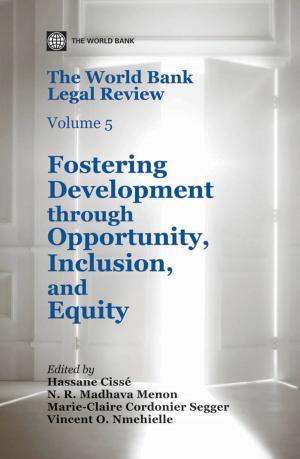Sustaining Educational And Economic Momentum In Africa
Nonfiction, Reference & Language, Education & Teaching| Author: | World Bank | ISBN: | 9780821383773 |
| Publisher: | World Bank | Publication: | May 4, 2010 |
| Imprint: | Language: | English |
| Author: | World Bank |
| ISBN: | 9780821383773 |
| Publisher: | World Bank |
| Publication: | May 4, 2010 |
| Imprint: | |
| Language: | English |
Most African countries can take pride in the unmistakable progress towards the Education for All (EFA) goals for 2015 agreed at the Dakar 2000 World Education Forum, thanks to the combined impact of laudable education reforms, substantially increased public financing of education and greater flows of external aid for education. Yet the good news has been dampened by the global financial crisis of 2008, a crisis that could well reverse the hard won educational gains of the last decade. Of particular concern is the potential setback to the nascent efforts in many African countries to align the expansion of secondary and tertiary education more closely with the needs of the economy and to equip the workforce with the skills for economic competitiveness. These concerns attracted 44 African Ministers from 28 countries, among them 16 Ministers of Finance and of Education perhaps the first ever conference convening both groups of ministers to participate in the July 2009 Conference on Sustaining the Education and Economic Momentum in Africa amidst the Current Global Financial Crisis jointly hosted by the Association for the Development of Education in Africa, the African Development Bank and the World Bank. The ministers affirmed that educational reform is an agenda for the whole government, not just for the ministries charged with developing and implementing education and training policies. It therefore requires strong leadership to foster cross-ministry collaboration, coordination and mutual accountability, so that investments in education and training can indeed help to advance national development and economic progress, particularly in today's knowledge-based global economy. These conclusions and their implication received ample discussion at the conference. As such, the meeting fully met its goal of deepening understanding of why ministers of finance and of education must exercise joint political leadership for educational development, and of how they might do it.
Most African countries can take pride in the unmistakable progress towards the Education for All (EFA) goals for 2015 agreed at the Dakar 2000 World Education Forum, thanks to the combined impact of laudable education reforms, substantially increased public financing of education and greater flows of external aid for education. Yet the good news has been dampened by the global financial crisis of 2008, a crisis that could well reverse the hard won educational gains of the last decade. Of particular concern is the potential setback to the nascent efforts in many African countries to align the expansion of secondary and tertiary education more closely with the needs of the economy and to equip the workforce with the skills for economic competitiveness. These concerns attracted 44 African Ministers from 28 countries, among them 16 Ministers of Finance and of Education perhaps the first ever conference convening both groups of ministers to participate in the July 2009 Conference on Sustaining the Education and Economic Momentum in Africa amidst the Current Global Financial Crisis jointly hosted by the Association for the Development of Education in Africa, the African Development Bank and the World Bank. The ministers affirmed that educational reform is an agenda for the whole government, not just for the ministries charged with developing and implementing education and training policies. It therefore requires strong leadership to foster cross-ministry collaboration, coordination and mutual accountability, so that investments in education and training can indeed help to advance national development and economic progress, particularly in today's knowledge-based global economy. These conclusions and their implication received ample discussion at the conference. As such, the meeting fully met its goal of deepening understanding of why ministers of finance and of education must exercise joint political leadership for educational development, and of how they might do it.















